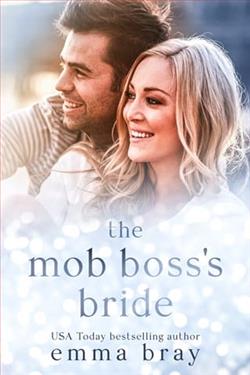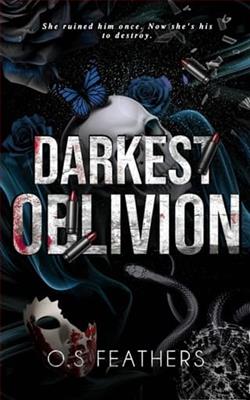Page 183 of American Hellhound
Behind the wheel, he made a face. “My parents’ place, actually.”
“Oh.” She knew his parents were both dead, but she hadn’t thought there was a house still in play. “You still have it?”
“Yeah.”
She waited a beat, and when he didn’t elaborate: “Can I ask why you don’t live there instead of…”
“My shithole apartment?” He sent her a wry look. “The cattle property’s not exactly fit for living.”
“Cattle property?”
“I didn’t tell you? I grew up on a hundred acres of cow pasture.”
The trip took them outside the city and past the suburbs, into stretches of field and forest criss-crossed with barbed-wire and four-board fence. Autumn-brown grasses, brilliantly-colored leaves, herds of horses and cows that swished lazily at the last few flies of the year.
They passed the gates and stone columns of a place called Briar Hall Farm, flickering gas lanterns on the gateposts, a glimpse of black fence and a tree-lined drive, and continued on another mile until Ghost slowed when they reached a battered tin mailbox. The driveway they turned into was gravel and badly rutted, in need of grading. The truck swayed, struts squeaking as they left the road and pulled up to a locked metal gate.
“Just a sec,” he promised, and hopped out to unlock it.
He moved the truck forward, and then relocked it behind them. She found she was grateful for the barrier: no one would drive up on them this way.
“Does Duane–” she started.
“He doesn’t have a key, no, and the only way up to the barn is by the driveway…or a really long walk through some nasty-ass briars. You’d have to cut your way through with a machete.”
A relief to hear.
The driveway rocked and jostled them the whole way up, stray branches slapping at the windshield; Maggie thought the radio antenna might snap off.
“Needs worked on,” Ghost said with an apologetic frown. “I keep thinking I’ll get up here and do some work…but then I don’t.”
“Are there any cows, still?”
“No.”
The hill came to a crest and the view opened up, rolling pastures full of waving brown grass. The fields went on and on, disappearing into the distance, framed by dark green tree lines.
“Wow,” she breathed. “It’s gorgeous.”
“That’s the house,” Ghost pointed out as they passed it, a two-story white farmhouse with a rusted metal roof and a sagging porch. The longer she looked, the more she could see wrong with it: the broken windows, a tail of stained curtain trailing from one; the missing porch rail; the mold and mildew crawling up the shady side; the bird that fluttered from the eave, leaving its nest, no doubt.
“Oh,” she said, sadly, and he patted her knee.
“It doesn’t bother me anymore,” he assured.
But it botheredher. No one should have to see their childhood home so dilapidated.
“Dad let it get way outta hand before he died, and then.” He shrugged and didn’t explain further. She knew what he meant, though: he hadn’t had the heart to fix the place up.
The drive moved around a bend and started up another hill, passed through a clump of dense trees. It ended at the base of a towering wooden barn, its doors hanging open, the interior cavernous and dark.
Maggie peered up at it through the windshield, craning her neck. “Not that this isn’t cool – it is, really – but please tell me we aren’t going to live in a barn.”
He snorted. “Nah. Target practice.”
Ah yes, the aforementioned teaching her how to shoot.
She felt a nervous flutter in her stomach, which was stupid, considering what she’d done with a gun just last night.















